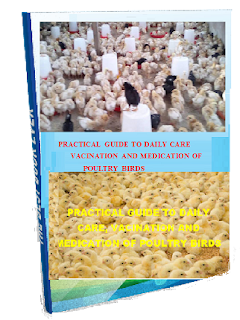Agriculture's Expertise Revolution Needs To Be Democratic If Smallholder Farmers Are To Advantage
Agriculture's Expertise Revolution Needs To Be Democratic If Smallholder Farmers Are To Advantage
* Any views expressed in this article are these of the writer and not of Thomson Reuters foundation.
Autumn in the vital Valley of California capability harvest time for almonds. think about picturesque lines of trees, full and heavy below the autumnal colorations – and, fleets of agribots.
fitted with artificial intelligence and sensors, these machines have changed average strategies of handpicking the nuts which consisted of shaking the bushes vigorously so the almonds fall to the ground for easy assortment.
‘Going robotic’ is only one vogue within the technological revolution broadly proclaimed because the way forward for agriculture.
This revolution brings with it precision farming equipment, computerized farming and big-facts pushed advisory capabilities - to identify just a few - which are assisting farmers reduce waste, increase productivity, and cut back construction fees.
Which is what we deserve to make certain adequate meals is produced to feed the globe’s regularly becoming inhabitants.
With the sphere finally relocating to catch up with different digitised industries, there has been a growth in agri-tech startups and personal sector investments in new markets and innovations. it's a enormously exciting and shiny house.
until you ensue to be a smallholder farmer.
In developing countries, the vast majority of farmers own plots of two hectares or much less and may’t come up with the money for digital applied sciences - like those of the robotic almond-tree shakers.
despite that, smallholder farmers are producing around one-quarter of the area’s food on farms smaller than 2 hectares, and about half on farms under 20 hectares.
It’s not that innovation is not going on in developing countries. In recent years there has been a proliferation of startups striving to supply imaginative features to farmers.
but examples of success are scarce and the substantial majority of startups fold inside their first few years.
a huge a part of the difficulty is that the company models for the digital transformation in agriculture are less conceivable when you flow to small farms with restricted capital. additionally, many components of the establishing world characterize a ‘black hole’ when it comes to facts availability, a precursor in many cases to setting up digital functions and options to farming.
So at the same time as the tech revolution is eventually happening in agriculture, unluckily in its existing kind it's neither inclusive nor democratic. This so-called digital divide means that smallholder farmers are at a stronger drawback in an ever more globalized meals system.
Forging a digital revolution in smallholder agriculture requires democratizing access to statistics and technological advances and translating these advances for use by using the complete range of farm types accessible. It’s all about context.
even though robots make their technique to establishing countries, like these in Africa, they are going to have little success unless they're low-priced ample and tailored to the terrain and plants of the continent.
at present, mobile technology presents the biggest possibility to promote information-driven agronomy for small-scale agriculture. In Africa, almost all smallholders have access to cellphones and cell funds. Smartphone penetration is at all times expanding.
The built-in sensors and cameras can be used by way of growers to diagnose crop ailments and get custom crop administration assistance. through facebook, they might even video display the unfold of farm animals infection.
The incorporation of mobile expertise in agriculture is additionally inspiring a new wave of hobby in farming - youths.
Of route, there are some challenges alongside the style. based on a record with the aid of the U.S. company for overseas construction, girls are 30% less prone to have entry to cellphones than men.
To democratise this technological revolution for smallholder agriculture, large funding is needed.
counting on the inner most sector by myself to do so won’t be enough; the international community ought to step in and supply the right enabling atmosphere to steer the market within the right route, to construct constructive and democratic facts-driven capabilities and applied sciences.
There has to be investments in digital infrastructure akin to local network entry for rural areas, in addition to incentives for universities and research institutions to boost improvements for small-scale farmers.
I haven't any doubt that expertise is the way forward for agriculture, and it will possibly disrupt a failing food system for the better. but we need to shape what that future will seem like. A a success agricultural revolution can be one it's democratic and inclusive, the place all and sundry benefits..
Andy Jarvis co-headquartered the CGIAR Platform for massive data in Agriculture and is amongst these credited for developing probably the most known global information units on local weather, WorldClim. he's at the moment the research area director on resolution and coverage evaluation on the foreign center for Tropical Agriculture. He holds a PhD in Geography from King’s college London.



Comments
Post a Comment